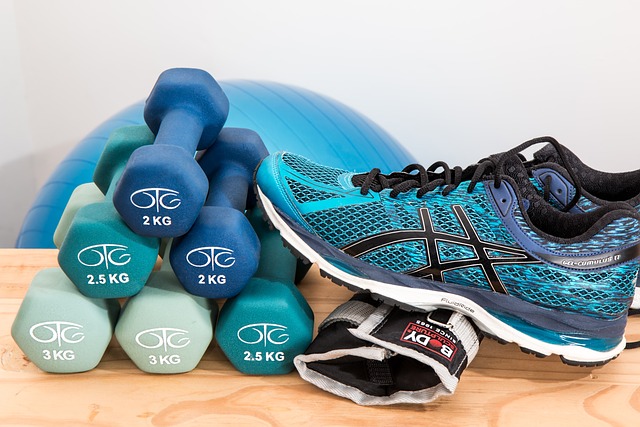
Discover the hidden keys to naturally managing your blood pressure with our informative article.
Through a concise and accurate exploration, we will unveil the secrets to maintaining optimal blood pressure levels.
Learn how to limit sodium intake, exercise regularly, maintain a healthy weight, limit alcohol consumption, and quit smoking to achieve a balanced and healthy lifestyle.
Empower yourself with the knowledge and take control of your blood pressure for a life of freedom and vitality.
Limit Sodium Intake
One effective method for naturally regulating your blood pressure is limiting your sodium intake. Consuming a low sodium diet can significantly reduce the risk of high blood pressure and its associated health complications.
High levels of sodium in the diet can lead to fluid retention and increased blood volume, causing the heart to work harder and resulting in elevated blood pressure.
To maintain a low sodium diet, it is crucial to be aware of the hidden sources of sodium in processed and packaged foods. Reading food labels and opting for fresh, whole foods can help in reducing sodium intake.

Additionally, there are alternatives to salt that can be used to enhance the flavor of meals, such as herbs, spices, and citrus juices.
Exercise Regularly
Regular exercise is an essential component in naturally regulating blood pressure. Engaging in physical activity on a regular basis offers numerous benefits for both physical and mental well-being. Here are some exercise benefits to inspire you to get moving:
- Improved cardiovascular health: Exercise strengthens the heart and improves blood circulation, reducing the risk of high blood pressure.
- Stress reduction: Physical activity releases endorphins, which can boost mood and alleviate stress, contributing to better blood pressure control.
To reap these benefits, it is recommended to engage in moderate-intensity aerobic exercise for at least 150 minutes per week, or vigorous-intensity exercise for 75 minutes per week. This can be achieved through activities such as brisk walking, cycling, swimming, or dancing.
Maintain a Healthy Weight
Maintaining a healthy weight is crucial for naturally regulating blood pressure. When you carry excess weight, your heart has to work harder to pump blood, leading to increased pressure on the blood vessels.
To achieve and maintain a healthy weight, it is important to follow a balanced diet that includes a variety of nutrient-rich foods such as fruits, vegetables, whole grains, lean proteins, and healthy fats. Avoiding excessive calorie intake and reducing the consumption of processed and sugary foods can help in weight management.
Additionally, stress management plays a significant role in maintaining a healthy weight. Chronic stress can lead to overeating and weight gain, so finding healthy ways to manage stress, such as exercising, practicing mindfulness, and seeking social support, can contribute to maintaining a healthy weight and naturally regulating blood pressure.
Limit Alcohol Consumption
To effectively regulate your blood pressure naturally, it is essential to limit your consumption of alcohol. Alcohol moderation is crucial for maintaining a healthy blood pressure level and overall well-being.

Here are two reasons why limiting alcohol consumption is important:
- Alcohol and blood pressure: Excessive alcohol intake can lead to high blood pressure. Alcohol affects the nervous system and can disrupt the balance of hormones responsible for regulating blood pressure. By moderating alcohol consumption, you can help keep your blood pressure within a healthy range.
- Lifestyle changes: Limiting alcohol consumption often goes hand in hand with adopting a healthier lifestyle. Cutting back on alcohol can motivate you to make other positive changes, such as eating a balanced diet and exercising regularly. These lifestyle changes can have a significant impact on your blood pressure and overall health.
Quit Smoking
Smoking cessation is a crucial step in naturally regulating your blood pressure. Quitting smoking not only improves your overall health, but it also has a significant impact on your blood pressure levels.
Nicotine, the addictive substance in cigarettes, causes the blood vessels to constrict, leading to an increase in blood pressure. By quitting smoking, you allow your blood vessels to relax and expand, reducing the strain on your cardiovascular system.
There are various methods to help you quit smoking, including nicotine replacement therapy and smoking cessation programs. Nicotine replacement therapy involves using products like patches, gum, or inhalers to gradually wean off nicotine. Smoking cessation programs offer support, education, and resources to help individuals quit smoking successfully.
Frequently Asked Questions
Can Stress and Anxiety Affect Blood Pressure Levels?
Chronic stress can have detrimental effects on blood pressure levels, as it triggers the release of stress hormones that constrict blood vessels. However, mindfulness techniques have shown promise in managing blood pressure by promoting relaxation and reducing stress.
Are There Any Natural Supplements or Remedies That Can Help Regulate Blood Pressure?
Yes, there are natural supplements and herbal remedies that have been shown to help regulate blood pressure. These include garlic, hawthorn, fish oil, and coenzyme Q10. However, it is important to consult with a healthcare professional before starting any new supplements.
How Long Does It Typically Take to See Results From Lifestyle Changes in Blood Pressure Regulation?
Results from lifestyle changes in blood pressure regulation vary, but typically take several weeks to months to see significant improvements. Consistency and adherence to healthy habits, such as regular exercise, a balanced diet, and stress management, are key for long-term success.

Can Certain Medical Conditions or Medications Affect Blood Pressure Levels?
Certain medical conditions and medications can have an impact on blood pressure levels. Medical conditions such as kidney disease, thyroid disorders, and sleep apnea can contribute to high blood pressure. Additionally, certain medications, such as certain antidepressants and nonsteroidal anti-inflammatory drugs (NSAIDs), can also affect blood pressure. It is important to consult with a healthcare professional to understand the potential effects of medical conditions and medications on blood pressure.
Is It Possible to Prevent High Blood Pressure Through Lifestyle Changes Alone, Without the Need for Medication?
Preventing high blood pressure through lifestyle changes alone, without the need for medication, is possible. By adopting a healthy diet, engaging in regular physical activity, managing stress, and avoiding tobacco and excessive alcohol consumption, individuals can naturally regulate their blood pressure.






